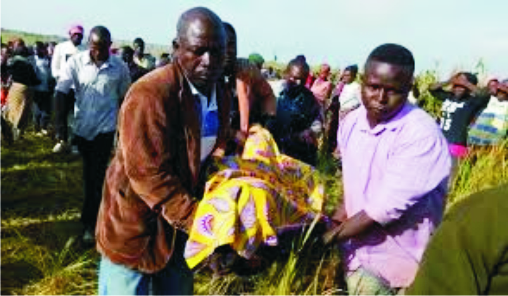By HENRIETTA GONZUK
THE incessant attacks on communities in Plateau State have reached a crescendo. Once fondly known as the ‘Home of Peace and Tourism’, the state has, over the years, been plagued by violent crises. The once habitable and hospitable land that drew people for its weather and natural beauty has become dreaded due to persistent mayhem. From religious crises to attacks by suspected Fulani herdsmen, kidnappings and terrorist assaults on unsuspecting communities, the situation has worsened in the past two years of President Bola Tinubu’s administration.
With recurrent brutal attacks in Bassa, Barkin Ladi, Riyom and Mangu local government areas by Fulani militias (leading to killings, annexation of villages and destruction of homes and livelihoods), the situation has become deeply worrisome.
According to Isa Sannusi, Director of Amnesty International Nigeria, “The authorities’ failure to protect lives and property has led to a circle of impunity making everyone feel unsafe.” Amnesty International reports that over 2,630 people have been killed in Plateau attacks in just the last two years. Many security analysts wonder how terrorists can repeatedly access the same communities despite government and military presence.
Government response, its limitations although both national and state authorities have responded to flash points, critics argue their actions are often too slow and far too inadequate. Military units are stationed to protect and repel external aggression, while the police and vigilantes are tasked with gathering intelligence and conducting surveillance. Yet, despite these efforts and calls for information sharing, the attacks persist.
Unfortunately, different forms of interventions, including kinetic and non-kinetic strategies, community dialogues, traditional and religious leader engagements and the involvement of stakeholders and peace agencies, have not yielded the desired results. Plateau State Governor, Barrister Caleb Mutfwang, recently declared on Channels Television: “What is happening is not a farmer-herder conflict. Let me be clear: it is genocide, and I urge the international community to take note.”
Beyond public narratives that downplay these events as minor clashes (as has become the recurring narrative of the Federal Government), many citizens believe there is a grander conspiracy against the state. Others insist the very system constitutionally tasked with safeguarding lives and property has become complacent.
Causes of insecurity on the Plateau
Several factors explain the recurrent insecurity. Indigene-settler conflicts—such as the Berom, Afizere and Anaguta indigenes versus the Hausa and Fulani settlers—have festered for decades. Clashes like those in Yelwa between the Goemai and Hausa and Fulani settlers, and the farmer-herder disputes involving the Irigwe, Berom, Mwaghavul and Fulani herders, often stem from cattle roaming into farms and destroying crops.
Climate change has worsened the situation, driving herders to migrate in search of greener pastures, often without regard for landowners’ rights. Ethnic domination also plays a role, as some groups attempt to assert control over other indigenous populations, especially in the Middle Belt. Yet, perpetrators of such heinous acts are rarely prosecuted, fueling resentment and impunity.
The proliferation of arms has further emboldened criminal activity. Alarmingly, some security operatives have been accused of complicity in these acts.
Way forward
The government’s handling of insecurity has, in many ways, emboldened perpetrators. With few arrests recorded and little accountability, criminals act without fear of consequences. For peace to return, decisive action is required: justice must be served, perpetrators prosecuted and indigenous communities adequately protected.
Plateau’s people long for the return of its former glory—the peaceful, welcoming land it was once known to be. Until then, calling a spade a spade is the first step toward truth, justice and lasting security.



